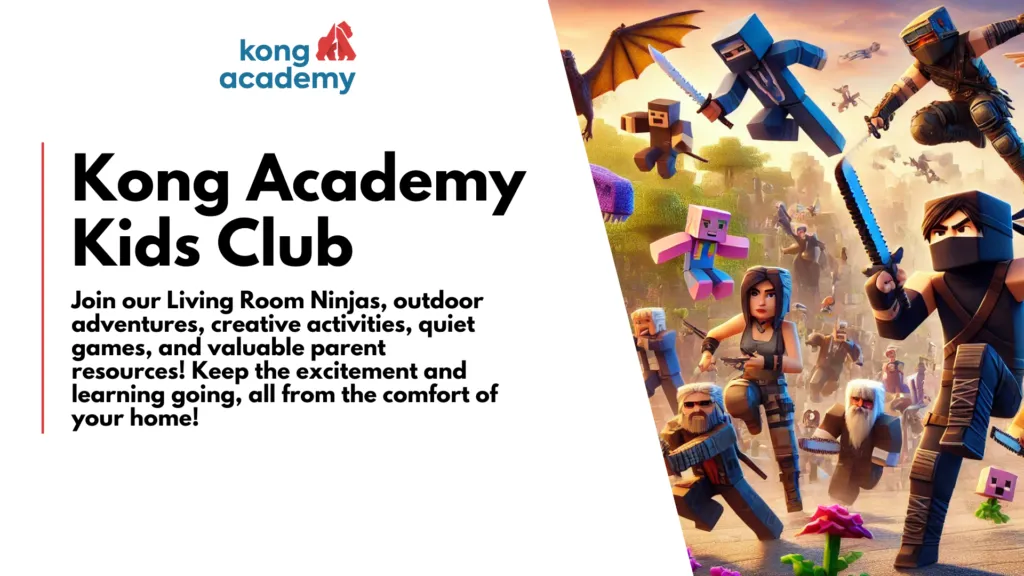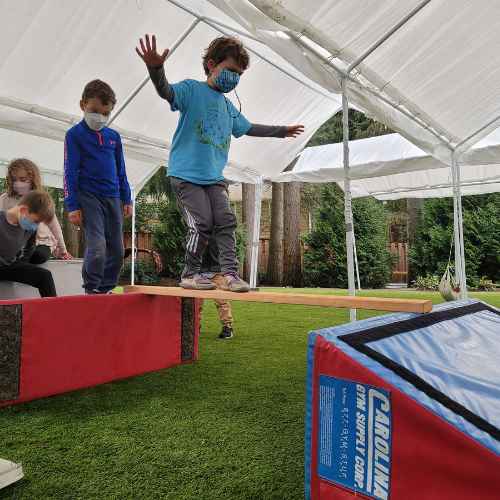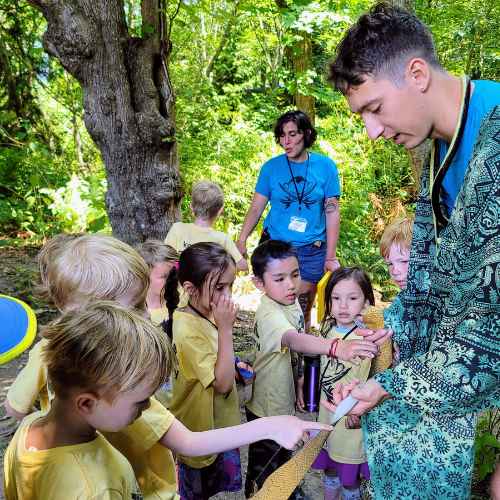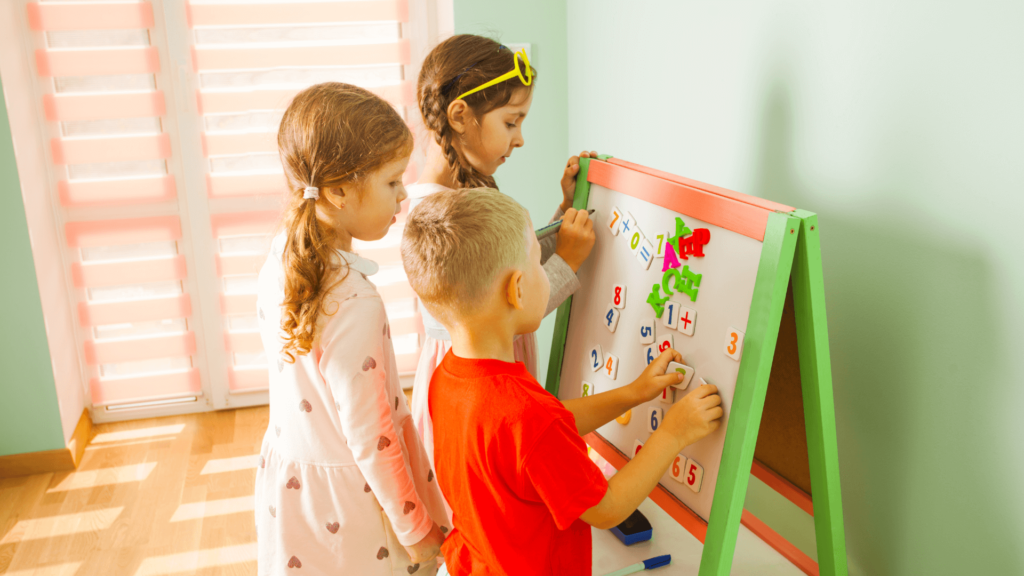
Encouraging strong decision-making skills in children under 12 is crucial for fostering confidence and independence. These skills not only empower children to navigate complex challenges, but also enable them to make smart choices and take initiative in their daily lives.
By learning to assess options, consider consequences, and trust their judgment, kids can gradually grow into more self-reliant individuals. This blog explores practical strategies and activities that parents and caregivers can implement to nurture these essential skills early on, helping kids build a solid foundation for future growth and success.
Age-Appropriate Decision-Making Skills
Equipping children with decision-making abilities not only enhances their self-esteem, it also nurtures their self-confidence. Decision-making is a practice, not a perfect, set of skills and takes time to develop. Here’s how you can get started:
Introduce simple decision-making scenarios through play
Begin by incorporating board games or storytelling sessions that involve making choices. For example, during a board game, ask your little one to choose between different strategies or paths to achieve their goals. This could be deciding whether to take a risky shortcut or a safer, longer route. Or, it could be giving them a set of scenarios that require a decision to move ahead, such as choosing how a character should solve a problem or the best route to take in an adventure story.
Making choices and thinking through options is a precursor to being a smart risk-taker and problem solver in the adult world.
Teaching basic problem-solving skills to young children
Use simple puzzles or practical challenges that invite your kid to think critically. For instance, present a scenario where a toy is broken and ask them how they would fix it. Alternatively, propose a situation where they need to share one toy with a friend, prompting them to consider different sharing methods. As you guide them through the process of evaluating various solutions, discuss potential outcomes for each option, and work together to pick the most effective solution.
Exploring decision-making in everyday routines
Involve children in daily decision-making processes by allowing them to pick their own outfits, decide on their afternoon snack, or pick a book for bedtime reading. This will not only make them feel valued, but will also teach them how to evaluate options and make smart choices that affect their day-to-day life.
Encourage responsibility with age-appropriate choices
Assign responsibilities that require making choices, such as asking your kid to set a table or maybe allowing them to pick what chores to tackle first. These tasks will help them understand the consequences of their decisions which fosters a sense of responsibility and accountability.
Incorporate positive self-talk into decision-making
Teach children to use positive self-talk to boost their confidence in making decisions. Encourage phrases like “I can choose wisely” or “I know what’s best for me in this situation.” This helps kids build a healthy relationship with their inner voice which contributes to healthy self-esteem and supports their ability to trust their own judgment.
Teach Responsible Decision-Making
Instilling responsible decision-making skills in children is crucial for their development into thoughtful and ethical adults. Here’s how you can guide them through this important process:
Explore the consequences of different decisions
Help children understand the outcomes of their choices by discussing potential consequences before they make decisions. Use examples from stories or real life to illustrate how different decisions lead to different results. This will help them grasp the impact of their actions on themselves and others. Thinking about others contributes to becoming more self-aware, a skill that often takes kids many years to fully understand.
Role-play to practice decision-making skills
Role-playing can be an effective tool to practice smart decision-making. Set up scenarios where your child must make choices, such as deciding how to handle a disagreement with a friend or choosing whether to spend their allowance on a toy or save it. This allow them to explore various options and outcomes in a safe environment.
Build empathy through decision-making activities
Incorporate summer activities that require children to consider others’ feelings and perspectives. For instance, ask them to think about how their decisions might affect their classmates or family members. Games and group activities that encourage taking turns and sharing can also help nurture empathy.
Encourage ethical considerations in choices
Discuss the importance of fairness, honesty, and kindness in decision-making. Encourage children to think about what is right and fair, and not just what benefits them. This could involve decisions like returning a valuable object they found lying around or choosing not to cheat in a game. Make sure to emphasize the value of integrity in every choice, even when no one is watching.
Foster Independence Through Choices
Fostering independence in children is crucial for their growth into stable and healthy individuals. Here are effective strategies to encourage autonomy through decision-making:
Allow children to make decisions within safe limits
Create a safe framework within which children can make choices. This could be as simple as letting them choose between preselected outfits, meals, or activities. These safe boundaries help them experience the freedom of choice while ensuring they remain protected from adverse consequences.
Support gradual autonomy in decision-making
Gradually increase the complexity and scope of decisions that children are allowed to make as they grow older. Start with small choices and slowly introduce more significant decisions as they demonstrate readiness and maturity. This approach helps children build confidence in their judgment and decision-making skills which is necessary for a smooth transition to practical life.
Provide constructive feedback on decisions
Offer feedback on the choices children make, emphasizing the learning aspects rather than just the outcome. Discuss what went well and what could be improved next time. Help them understand how their decisions lead to certain results while offering constructive feedback. This will guarantee that they are aware of the right choice the next time around.
Empower kids to set and achieve personal goals
Encourage children to set their own goals and make decisions that align with achieving them. Whether it’s academic, extracurricular, or personal milestones, guiding them in planning and executing their goals teaches them to take initiative and be accountable for their progress.
Promote Personal Growth
Responsible decision-making is a powerful tool for personal development and inner satisfaction in children. Here’s how you can use decision-making activities to promote personal growth and self-awareness:
Develop self-awareness through decision-making
Encourage children to reflect on their choices and recognize their preferences and values. By making decisions, children learn more about who they are, what they like, and what they believe in. This process of making choices and seeing the results can significantly enhance their self-awareness.
Build resilience and positive relationships by learning from decisions
Let your child know that not every decision will result in a favorable outcome, and that’s okay. Use examples where a choice might lead to unexpected challenges, and discuss how to handle these situations constructively. For instance, if a decision during a game leads to losing a turn, guide them on how to manage their feelings and learn from the experience.
It’s also important to involve them in decision-making scenarios that require considering other people’s feelings and perspectives. This could be deciding how to divide roles in a group activity or solving a conflict during play. Make sure that you also explain that empathy and kindness are key to forming positive relationships.
Reflect on personal growth through choices made
Regularly engage children in conversations about the decisions they have made and the outcomes they have experienced. Discuss what they learned from both negative and positive experiences and how they can use these lessons to grow. This reflection will also help them understand how their decisions impact their development into a better human being.
Set goals and plans based on desired decision outcomes
Begin by encouraging your child to think about what they want to achieve, whether it’s completing a puzzle, winning a game, or finishing a craft project. Guide them to articulate these goals clearly and discuss why they are important. Next, help them break down their goals into manageable steps.
For instance, if their goal is to build a tall tower with blocks, the steps might include sorting the blocks by size, planning the base, and considering balance and stability as they stack the blocks higher. As they plan, teach them to anticipate potential challenges and think about how they might overcome them. This planning process encourages children to think ahead and consider the consequences of their choices, fostering a proactive rather than reactive approach to challenges.
Teaching children decision-making skills is more than a practical necessity—it’s a foundational aspect of their development that impacts confidence, independence, and personal growth. By introducing age-appropriate decision-making scenarios, fostering responsibility, promoting autonomy, and encouraging reflection, you empower your children to navigate the complexities of life with resilience and self-awareness.
These skills prepare them not only for the challenges of childhood but for a successful transition into adulthood. As parents and caregivers, your role in guiding and supporting your child through these learning experiences is invaluable in shaping them into thoughtful, capable, and positive people.
We know life as a parent can be hectic and unpredictable. To support you, Kong Academy offers structured after-school programs designed to nurture essential life skills in your child. Our activities are crafted to enhance decision-making abilities through engaging, purposeful play. Consider giving your child the advantage of growth and learning even on your busiest days by enrolling them at Kong Academy today!
Decision-Making Skills For Kids Under 12: Frequently Asked Questions
1. What age should children start learning decision-making skills?
Children can start learning simple decision-making skills as early as preschool age. At this stage, decisions can be as simple as choosing between two snacks or selecting a storybook to read. As children grow, the complexity of the decisions they handle can gradually increase, helping them build confidence and competence over time.
2. How can I teach my child to make better decisions?
Teaching your child to make better decisions involves providing opportunities for them to practice in a safe environment. Discuss potential scenarios and outcomes, role-play different situations, and let them make small decisions daily. Additionally, providing constructive feedback is crucial to help them understand the consequences of their choices.
3. What if my child makes a bad decision?
When your child makes a bad decision, view it as a valuable learning opportunity. Avoid harsh criticism; instead, discuss what happened and explore what they can do differently next time. Encouraging reflection helps your child understand the outcomes of their choices and allows them to make better decisions in the future. Remember, the goal is to build their decision-making skills, not to punish them for mistakes.
If you’re in the Seattle metro, we offer summer camps and after school programs designed to empower kids and infuse their sense of independence. Contact us today to learn more.
GET Access to the ULTIMATE PLAY DATE PACKAGE (Value: $49) for FREE!
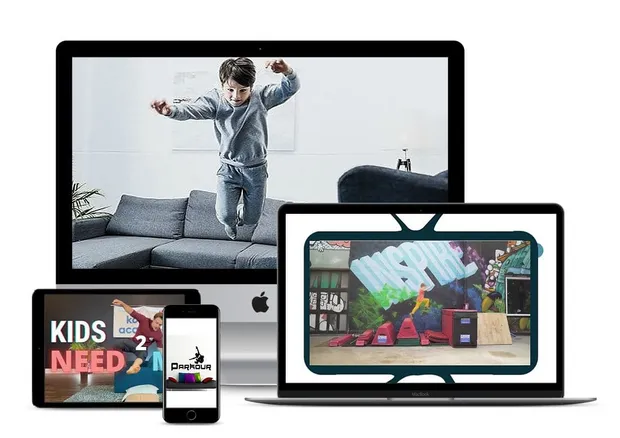

7-Day Crystal Shard Adventure
Unleash your child’s potential with our 7-day crystal shard movement adventure!

